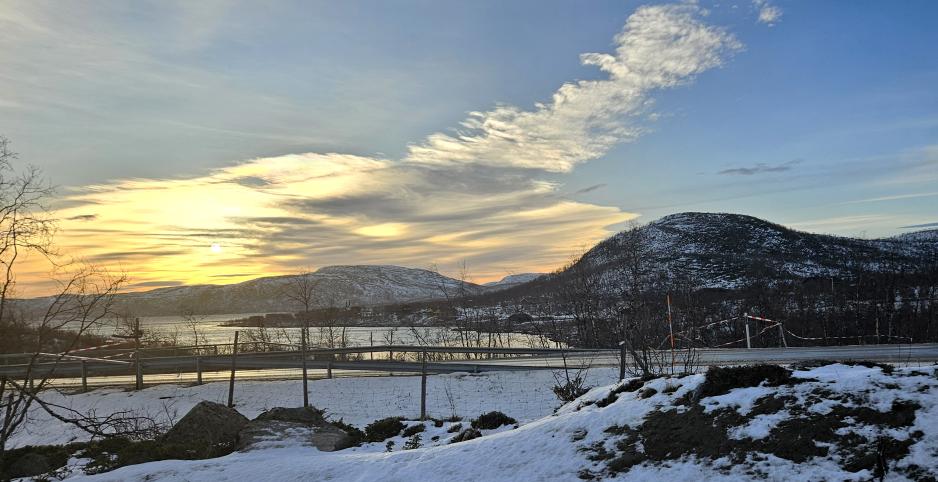Arne O. Holm says The Problem Is Not What Donald Trump Says He’ll Do, but That We Don’t Know What He’ll Do

The sun appeared for the first time in a long time when I passed Kilpisjärvi. (Photo: Arne O. Holm)
Kilpisjärvi (Comment): The problem is not what Donald Trump says he'll do. The problem is that no one knows what he's going to do. That will affect the Arctic not just for the four following years but perhaps forever.
This is a comment piece written by a member of the editorial staff. The comment reflects the writer's own opinions.
I am driving through the North, heading into winter, 415 kilometers from Tromsø to Kautokeino. Yet, the weather gods decide to frame the US election results in dark and gloomy torrential rain.
The US tech giant Google is not making the day any better either. They have never set foot in the Arctic during the Polar Night and miscalculate the estimated arrival time by several hours.
Through Finland
The shortest route between the two Norwegian cities is through a mostly empty part of Finland. The traffic consists of trailers and everything is about Donald Trump on the radio.
The world has gotten a reality check, which it obviously was not prepared for. Which it was impossible to prepare for.
Together with good colleagues, High North News shed light on what impact the election could have on the Arctic during an event in Tromsø on election night. 15 knowledgeable people visited the stage during the 3,5 hours we were on.
Does not care about climate.
The Arctic has not been part of the American election campaigns, except for the oil extracted in the state that makes the US Arctic, Alaska.
Most of the people on stage thought, which is something entirely different from hoping, that Donald Trump would win. And they were right.
Hit hard
We know that much of the politics Donald Trump says he will pursue will hit the Arctic quite hard. I am particularly thinking about the climate challenge as one of the areas where Trump will keep his promises. He does not care about the climate threat at all.
Even the republican senator Lisa Murkowski points this out as one of the biggest challenges with Trump. She lives in Alaska.
Yet, unpredictability rather than promises, often worded as claims, will impact the political decision-makers the hardest.
Don't know if he will defend us.
My journey through Finland and Norway is illustrative. We both share a border with Russia. No one knows how Trump will react toward Vladimir Putin and the belligerent Russia. We don't know if he'll sacrifice another neighboring country, Ukraine. We don't know if he'll withdraw the US from NATO.
We don't know if he will defend us if Russia attacks.
The Arctic Council
The most important research cooperation in the North is under the Arctic Council umbrella. We don't know whether Trump will withdraw the US from the Arctic Council, which would have fatal consequences for international research cooperation.
We also don't know how high tariff walls he will build or how much of the US industry he will subsidize. We just know that the biggest industrial companies are already fleeing the Nordic region for the US to avoid tariff walls and grab subsidies.
Fear and unpredictability.
In sum, we know very little, and the problem of knowing very little is that it makes planning difficult. Modern politics and economic leadership require predictability, knowing which cards are in the deck.
For Trump, the opposite is true. Fear and unpredictability are his tools.
We are past the time when we could "comfort" ourselves by pinning medical diagnosis or dark brown colors on Trump. He has been elected by his own.
That makes the future challenging, even in the Arctic and the High North.



